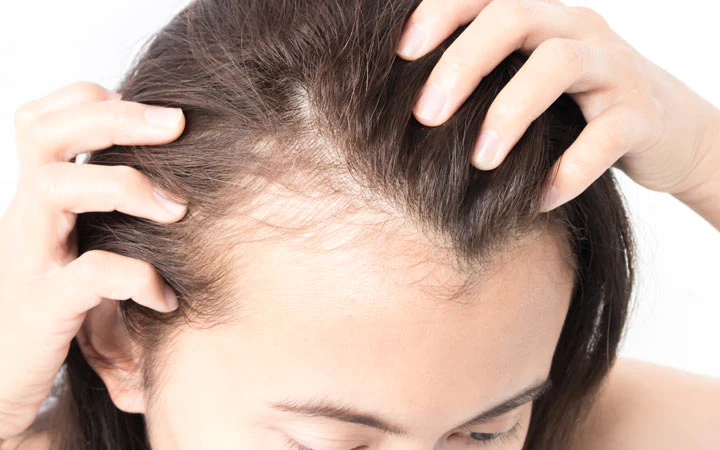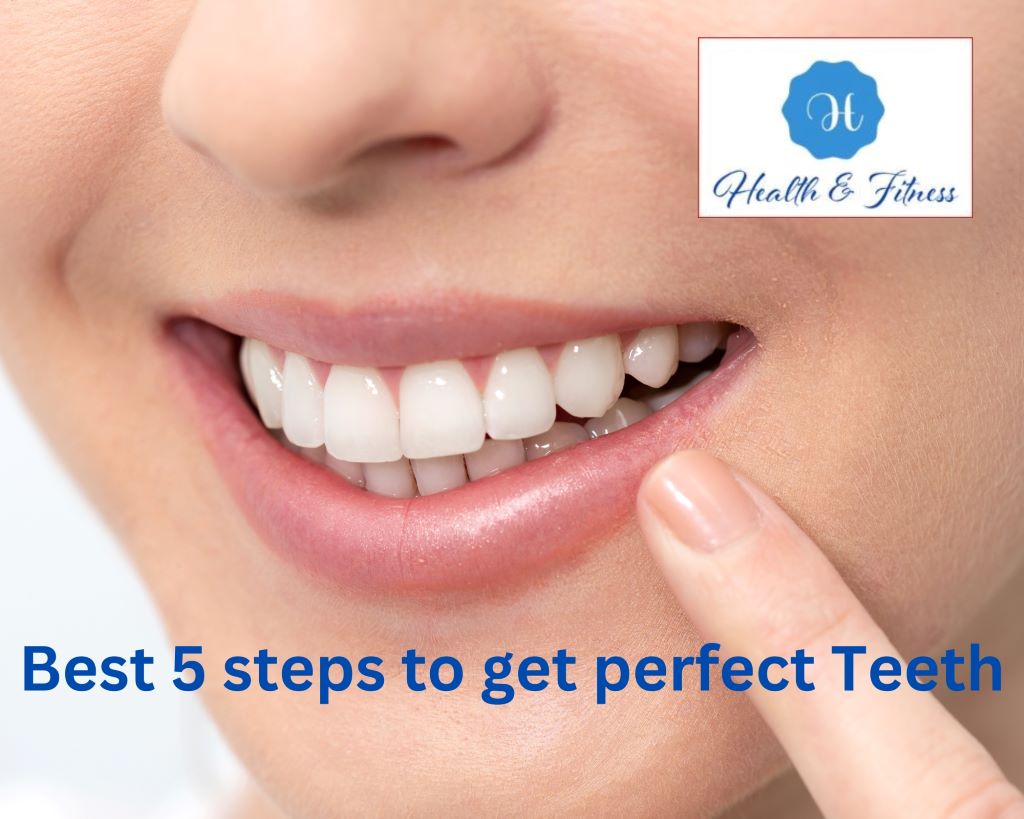The Truth About Creatine and Hair Loss?
Unlock the truth: Does creatine cause hair loss? Get expert insights and answers. Your ultimate guide awaits.
Introduction to Does Creatine Cause Hair Loss?
Does creatine cause hair loss? Explore creatine’s effects on hair in this informative guide.
Creatine is a popular workout supplement, but there’s no solid proof it causes hair loss. Hair loss has many causes and no cure, but treatments can help. More research is needed to confirm any link between creatine and hair loss.
What is Creatine?
it is a naturally occurring compound that muscles store to produce energy during short bursts of physical activity. Athletes frequently consume creatine supplements to improve their athletic performance and build muscle mass. Although they consider these supplements safe, choosing high-quality products and seeking advice from a healthcare professional is crucial. Besides boosting athletic performance, creatine may have additional health advantages.
What benefits of creatine?

Besides its role in energy production and muscle function, creatine has several potential health benefits. Here are a few:
1. Increased muscle mass and strength
Creatine supplements may help increase muscle mass and strength in athletes and non-athletes.
2. Improved exercise performance
Creatine supplements have improved exercise performance in weight lifting and sprinting activities.
3. Enhanced brain function
Some studies suggest that creatine supplements may improve cognitive function and memory in individuals with certain medical conditions.
4. Potential treatment for certain medical conditions
there have been studies on creatine supplements for their potential to treat conditions such as Parkinson’s disease, depression, and traumatic brain injury.
5. Improved heart health
Some studies suggest that creatine supplements may improve heart health by reducing blood pressure and improving blood flow.
6. Potential Treatment for Depression
Some studies have suggested that creatine supplements may have the potential as a treatment for depression. One study found that supplementing with creatine improved symptoms of depression in women with major depressive disorder.
7. It May Reduce Age-Related Muscle Loss
As we age, we lose muscle mass, contributing to weakness and decreased mobility.
Some studies have shown that creatine supplements help prevent age-related muscle loss.
8. Improves Bone Healing
There’s evidence that taking creatine after a bone injury or fracture will speed up recovery.
One study found that supplementing with creatine helped improve bone regeneration in rats with bone defects. While we need more research to understand the potential benefits of creatine supplements fully, these findings suggest that creatine may have a range of applications beyond athletic performance. Always talk to a doctor before starting a new supplement plan.
What is losing hair?
It is a common condition affecting individuals of all ages and genders. It occurs when hair is lost from the scalp or other body parts. The causes of hair loss are diverse and can include genetic factors, hormonal changes, stress, certain medical conditions, and medication side effects. Hair loss can manifest as gradual thinning or complete baldness and affect different areas of the scalp or body. The impact of hair loss on self-esteem and confidence can be significant, leading to anxiety and sadness. Although no definitive cure for hair loss exists, treatments are available to slow down the process and promote new hair growth. These treatments may include medication, hair transplants, and lifestyle changes, such as stress management and a healthy diet. Early intervention is crucial for maximizing the chances of hair regeneration.
A. Hair Growth Cycle
It is a continuous process that involves three main stages.
- Anagen – This is the active growth phase, where the hair follicle makes new hair cells and the hair grows longer. The anagen phase can last for years; how long it lasts determines how long your hair can grow.
- Catagen – In this stage, hair grows more slowly, and the hair follicle gradually decreases. The catagen phase lasts for a few weeks.
3. Telogen
This is the resting phase, where the hair follicle is dormant and the hair stops growing. The follicle holds the old hair in place, and the new hair grows beneath it. The telogen phase lasts for several months. After the telogen phase, the old hair falls out, and the hair growth cycle starts again with the anagen phase. We lose about 50-100 hairs daily, a normal part of the hair growth cycle.
B. Common Cause of Hair Loss

- Genetics: Explanation of how genes can play a role in hair loss, including male and female pattern baldness
- Hormonal changes: Explanation of how hormonal changes during pregnancy, menopause, and other life events can contribute to hair loss
- Medical conditions: Explanation of how medical conditions like thyroid disease and autoimmune disorders can cause hair loss
- Medications: Explanation of how certain medications, such as chemotherapy drugs, can cause hair loss as a side effect
- Nutritional deficiencies: Explanation of how a lack of certain nutrients, such as iron or biotin, can contribute to hair loss
By understanding the different factors that can contribute to hair loss, you can take steps to identify the underlying cause of your hair loss and work towards finding an appropriate treatment.
The Creatine-Hair Loss Connection
Does creatine cause hair loss?
Some people aren’t sure if creatine supplements can make you lose your hair.
Some studies have suggested that creatine can increase dihydrotestosterone (DHT) levels in the body, a hormone linked to hair loss. However, other studies have found no evidence to support this claim.
Overview of Studies on Does Creatine Cause Hair Loss
Despite concerns, scientific evidence does not support the idea that creatine supplementation causes hair loss. Multiple studies found no significant hair loss in those taking creatine. However, further research is required to fully understand creatine’s impact on hair. If concerned, consult a doctor and explore all possibilities.
Discussing these studies’ drawbacks, such as small sample sizes and confounding factors
Does creatine cause hair loss?
Studies on creatine and hair loss have limitations, including small sample sizes and failure to consider confounding factors like genetics and hormonal imbalances. Most studies are conducted on men, so their findings may not apply to women. However, evidence indicates that creatine is unlikely to cause hair loss in healthy individuals. More research is needed to fully understand the relationship and potential risks.
These studies found inconsistent results, with some linking creatine to hair loss and others not.
Several studies have investigated the potential link between creatine supplementation and hair loss, but their findings have conflicted. Some studies have found a positive association between creatine use and hair loss, while others have found no significant link. Some researchers think that how creatine might affect hormones like testosterone and DHT could be a factor in hair loss. Still, more research is needed to confirm this. Overall, the current evidence is inconclusive, and we need more research to determine the true relationship between creatine use and hair loss.
Examination of How Creatine May Impact DHT Levels in the Body
Numerous studies have explored the potential link between creatine and DHT production, a hormone associated with male pattern baldness. While some suggest creatine might increase DHT levels, research remains inconclusive. Further investigation is needed to clarify this relationship.
How DHT Plays a Role in Hair Loss
DHT is a hormone that is made of testosterone and 5-alpha-reductase. It shrinks hair follicles, which leads to hair loss. As a result, hair shrinkage occurs, eventually leading to hair loss. Genetics, age, and lifestyle can influence the degree and rate of miniaturization. Genetics can affect DHT production, meaning some individuals may be more prone to hair loss if they produce more DHT. Prolonged exposure to DHT can also shorten the anagen phase, which is the active growth phase of the hair cycle. In summary, DHT’s role in hair loss is significant. Shrinking hair follicles leads to hair miniaturization and, eventually, hair loss. Understanding the link between DHT and hair loss can help individuals make informed decisions about their hair loss treatment options.
Debunking the Myth: Does Creatine Cause Hair Loss?
Overall, the evidence that links creatine to hair loss is limited and contradictory. While some studies have suggested a link between creatine use and increased DHT levels, others have found no association. Many other things can cause hair loss, like genetics and hormone changes, which may be more important than taking creatine supplements. In the next section, we’ll discuss some important points and considerations for hair loss and creatine supplementation.
The Truth About Creatine and Hair Loss
Does creatine cause hair loss?
No conclusive evidence supports a direct link between creatine supplements and hair loss. Although creatine can raise DHT levels, this increase is within normal levels and may not be hair-loss significant. Most studies were small and short-term, with limitations. Other factors, like genetics, diet, stress, and hormones, play a more significant role in hair loss. Some studies indicate that proper nutrition and exercise, including creatine, can promote hair growth. To minimize potential risks, choose a quality creatine supplement, and consider those with DHT blockers or hair-supportive nutrients like biotin, silica, or saw palmetto. In summary, while the creatine-hair loss link is debated, evidence suggests that creatine use alone is unlikely to cause significant hair loss.
When to see a healthcare professional?
First, healthy hair requires knowing when to consult a doctor for hair loss. Creatine supplementation doesn’t cause hair loss, but it may show a health concern that needs medical treatment. Schedule a doctor’s appointment if you have sudden or patchy hair loss or excessive hair loss after brushing or washing. They can diagnose your hair loss and propose a treatment strategy. Remember, many reasons for hair loss are curable, and early medical intervention can improve treatment outcomes.
FAQs for Does creatine cause hair loss
Can creatine cause hair loss?
Creatine is considered safe when used as directed. There is no strong scientific evidence linking creatine to hair loss. Hair loss can be caused by various factors, but creatine is not a known culprit.
Is creatine good or bad for your hair?
Creatine is primarily used as a supplement to enhance athletic performance and muscle growth. It is not specifically related to hair health. Maintaining a balanced diet and hair care practices are more important for the health of your hair.
Will hair grow back after creatine?
If you experience hair loss while using creatine, it’s essential to consult with a healthcare professional or dermatologist. They can help determine the underlying cause of your hair loss and recommend appropriate treatments. Hair can often regrow with the right interventions.
Does creatine cause hair loss in 2023?
As of my last knowledge update in September 2021, no credible scientific evidence suggests that creatine causes hair loss. However, it’s always a practice to stay updated with the latest research and consult with healthcare experts for the most current information.
The link between creatine supplements and hair loss is controversial. While some studies suggest a connection, others find no association. Other factors, such as genetics and stress, maybe more significant contributors to hair loss. Regular exercise and nutrition, including creatine supplements, may promote hair growth. If you’re concerned, consult a healthcare professional to identify underlying conditions and develop a treatment plan. Overall, it is unlikely that creatine alone causes significant hair loss.



